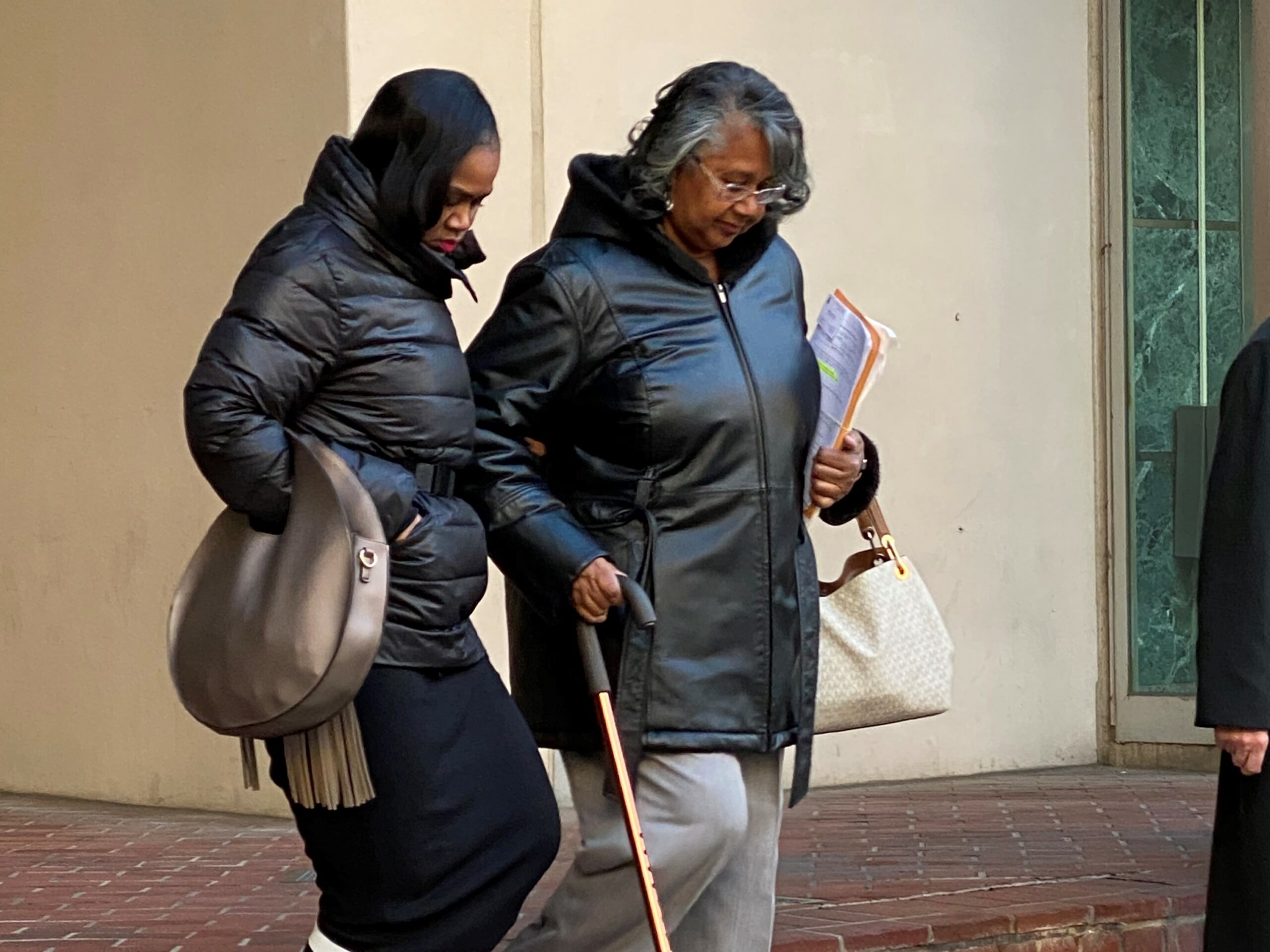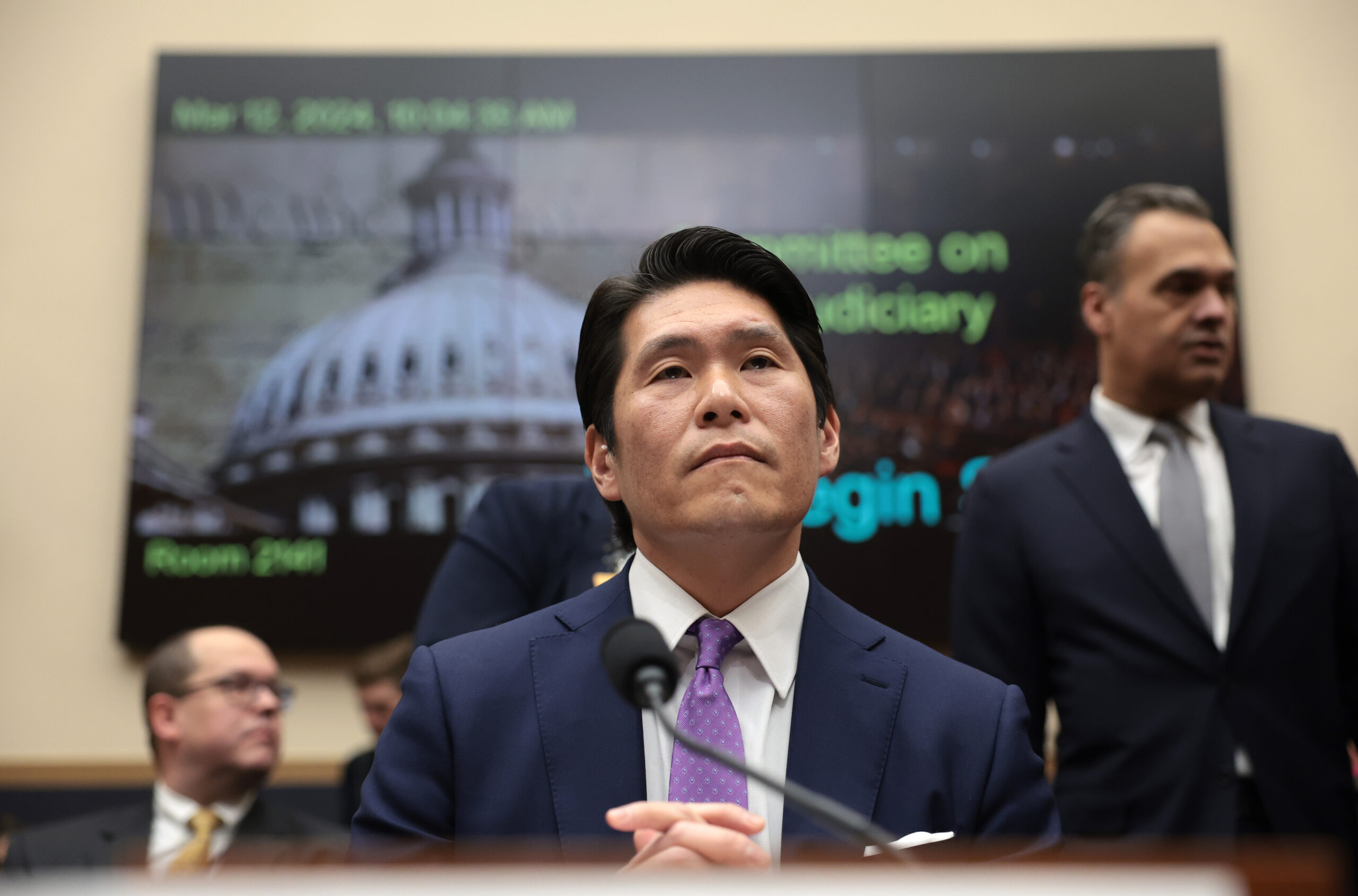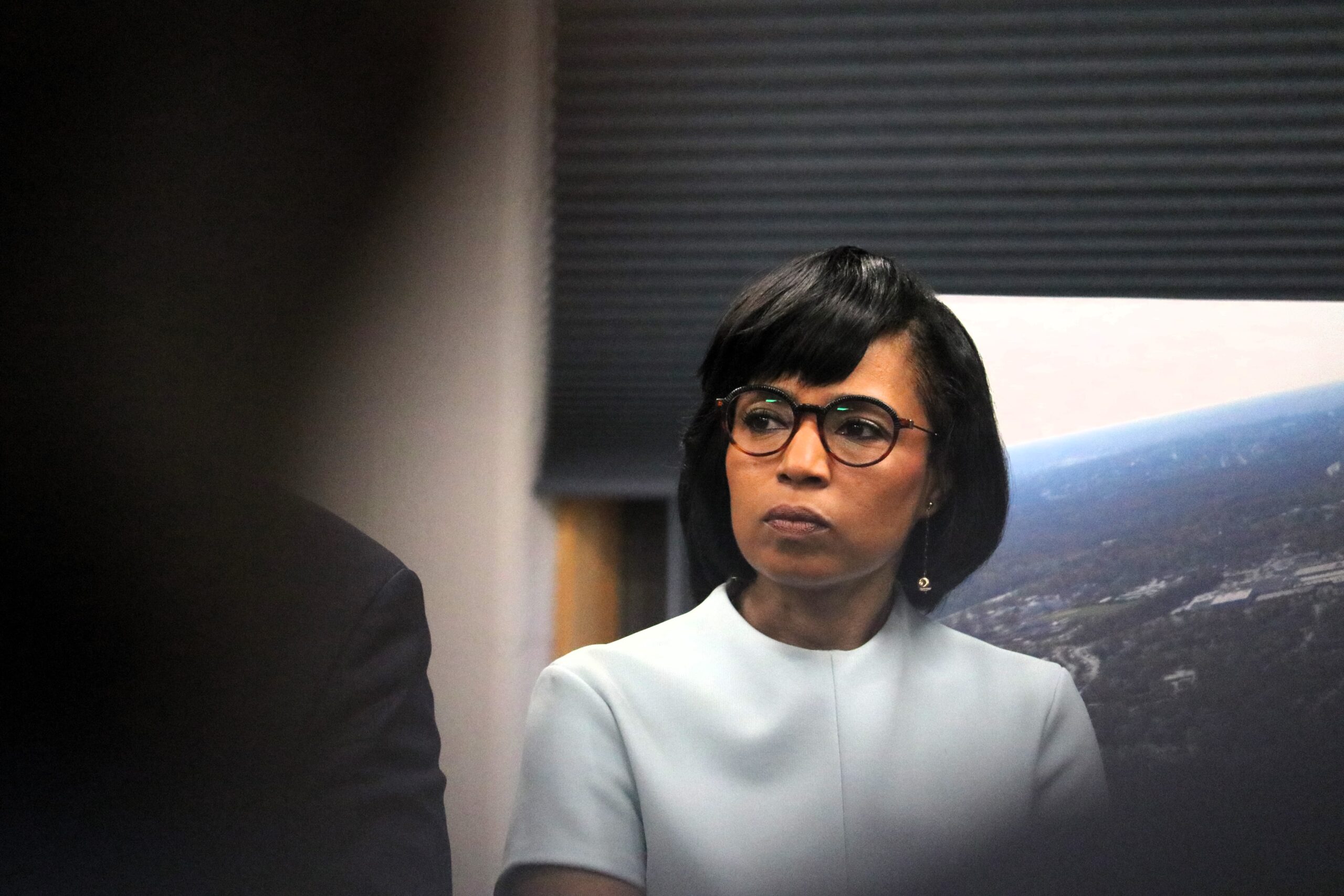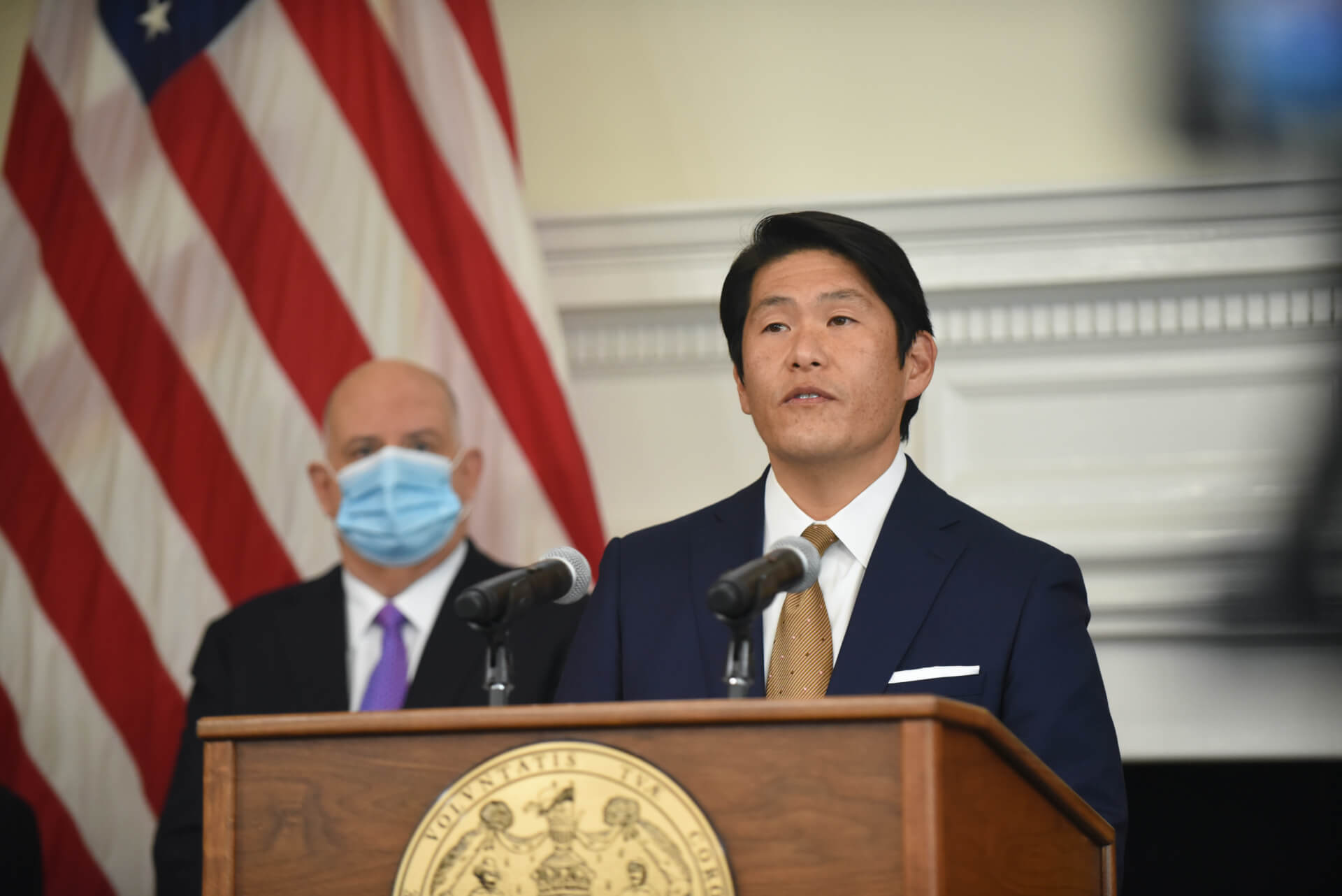Baltimore Entrepreneur’s Guilty Plea Provides Window Into Glenn’s Bribery Case

Baltimore businessman Lance A. Lucas pleaded guilty Monday on charges surrounding the bribery of former Del. Cheryl D. Glenn (D-Baltimore City), confessing publicly to paying the ex-lawmaker $42,500 for the benefit of his businesses.
Lucas pleaded guilty to charges of federal honest services wire fraud and to the use of an interstate facility ― the Internet and cell phone ― to carry on unlawful activity, also known as “The Travel Act.”
He is now facing up to 20 years in federal prison for the wire fraud charge and no more than five for the Travel Act violation. He will be sentenced in June.
Lucas’ guilty plea is an extraordinary window into the activities of Glenn, a prominent lawmaker who had been a leader of the Legislative Black Caucus and chairwoman of the Baltimore City House delegation.
“Legislative decisions should be made in the best interests of the public, not in exchange for bribes,” said U.S. Attorney for the District of Maryland Robert K. Hur in a statement.
Glenn pleaded guilty to charges of wire fraud and bribery in January. She resigned from the General Assembly in December ahead of her indictment.
Lucas’ misdeeds surround the medical cannabis business licensure application process held by the Natalie M. LaPrade Maryland Medical Cannabis Commission, which Glenn ― a champion of medical cannabis legislation ― helped to create.
Lucas was affiliated with two medical marijuana businesses. He paid Glenn in an effort to ensure that they would obtain state licenses.
The Maryland Medical Cannabis Commission is named after Glenn’s mother.
Lucas’ charges are also linked to the revision of 2018 legislation in Annapolis.
House Bill 1819 established the Cyber Warrior Diversity Program, which allots $2.5 million for the state’s HBCUs to teach students cybersecurity and computer networking skills.
According to documents released Monday by the U.S. Attorney’s Office, one of the businesses Lucas is affiliated with created the Cyber Warrior Diversity Program curriculum for retail to universities.
In 2019, Senate Bill 432, filed by former Sen. Shirley Nathan-Pulliam (D-Baltimore County) filed a revised version of the bill that would mandate that only specific businesses that met criteria laid out in the bill could supply the programming.
Lucas paid Glenn to cross-file the 2019 bill on the basis that the business he was affiliated with met the criteria.
Nathan-Pulliam resigned late last year for health reasons.
According to the plea agreement in U.S. District Court, Glenn and Lucas met in Baltimore in the spring of 2018.
At their meeting, Lucas told her that one of his affiliated businesses had experienced losses in the state’s medical cannabis license application process. Glenn told him that if he had paid her the application money instead, she would have provided for his license in a House bill.
Lucas then gave her four money orders totaling $2,000.
The pair met twice more in 2018, during which time the former delegate netted payments totaling $2,500.
In February of last year, Lucas and Glenn convened in her office where he asked if she would cross-file a bill linked to Senate Bill 432. She agreed.
A few days later they met at an Annapolis restaurant where he explained that this cross-filed bill would provide payments for another of his three companies from universities that used the curriculum.
On March 4, 2019, Lucas and Glenn met in his Porsche outside of an Annapolis restaurant where he gave her $1,500 cash in an envelope.
According to the court document, she then disclosed that the cross-file was having trouble making it out of the House Rules Committee because the bill was filed after the imposed deadline. Glenn said that she knew of another, unnamed delegate who would usher it through for $1,000.
He obliged, agreeing to pay the anonymous delegate through Glenn.
According to the plea agreement, this delegate was fabricated.
During the same meeting, Lucas bargained with the former delegate over her ability to assist his third company in duping the “double-blind” medical marijuana licensure application process. He offered to pay her up to $80,000.
“I need any advantage I can get,” he said according to the court document.
Glenn consented to help, sending Lucas the following text message just days later:
“I need the name of your [m]edical [m]arijuana company, and the names of everyone who are partners in the company. Working on a plan to help,” she wrote. “By the way, I kept my word, the Cyber Security bill will be voted out of [the] Rules [Committee] tomorrow and re-[r]eferred to probably the Ways & Means [Committee]. See you Monday.”
Glenn and Lucas had another Porsche meeting in Annapolis on March 11, where she disclosed that her connection on the Rules Committee had followed through. Lucas then gave Glenn the promised money.
The duo again met in the Porsche two weeks later in an Annapolis parking lot, where she disclosed that she had a “guy on the inside” of the Medical Cannabis Commission who would ensure that his business affiliates were given an advantage during the “double-blind” selection process for a medical cannabis growers license.
The plea agreement states that this employee was also bogus.
According to the court document, at this point, Glenn admitted to Lucas that she was “nervous” about moving forward. Lucas responded that he was working with “powerful” individuals with access to money and that everything would be fine.
“I’m from Baltimore for real, for real Baltimore … This is the least illegal thing that I’ve ever done. This is like patty-cake compared to the shit in Baltimore City,” he said.
Lucas agreed to pay $50,000 to the Medical Cannabis Commission employee, and $20,000 to Glenn for her role in the arrangement.
She told him her price via a coded text message that read: “Getting ready to buy lottery tickets, 20 should get me a winner.”
In yet another Porsche meeting on April 4, Lucas told Glenn that his business partners were amenable to paying $50,000 to the fake Medical Cannabis Commission connect, but that they preferred to do so on their terms: $25,000 beforehand, and the rest after their license approval.
When Glenn expressed concern, saying that she was risking it all, Lucas tried to calm her by comparing the dollar amount of her bribe money to that of former Sen. Nathaniel T. Oaks (D) and former Baltimore City Mayor Catherine E. Pugh (D), who he said was given “a half million dollars for a damn book.”
The plea agreement states that Lucas then gave Glenn $1,000 in cash for the fake Cannabis Commission insider, promising to pay the other $49,000 as well as four payments of $5,000 to Glenn for the assistance.
Between April 12 and July 30, Glenn and Lucas met four more times during which the former delegate received a total of $34,500.




 Creative Commons Attribution
Creative Commons Attribution